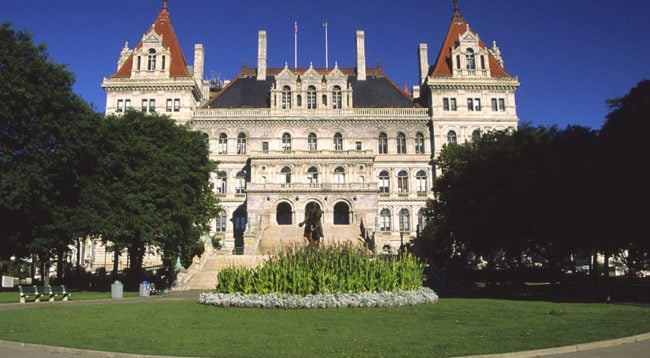$4.2 Billion Environmental Bond Act: What you should know
Updated April 11, 2022

On April 9, Governor Kathy Hochul and the New York State Legislature green-lit a question on New Yorkers’ November 2022 general election ballot seeking approval to bond $4.2 billion dollars (up from $3 billion first proposed in 2019) for a multi-year investment in clean water, air, wildlife and the environment. You may have a case of deja vu, since the bond act was approved in the 2020 budget for the 2020 ballot, but it was ultimately pulled due to the Covid-19 financial crisis. However, it’s back! If approved by the voters, the renamed “Clean Air, Clean Water, and Green Jobs Bond Act” would be the first such act since 1996. Investments from previous bond acts have yielded benefits for every corner of New York, investing in public parks, wildlife conservation, open space preservation, water infrastructure investment, toxic site cleanups and more.
If you are not familiar with how bonds are funded, Investopedia defines a general obligation bond as, “…a municipal bond backed by the credit and taxing power of the issuing jurisdiction rather than the revenue from a given project.”
A new environmental bond act would provide much needed long-term and dedicated funding for New York to prepare for the worsening impacts of climate change and invest in restoring wildlife habitat. Many of the categories included in the bond act offer the opportunity to prioritize nature-based solutions to preparing for these future challenges. An example is dam removals and fixing problematic culverts which open up streams for the migration of aquatic organisms such as river herring and eels, but also benefit humans by reducing the conditions that fuel harmful algal blooms and increase the risk of floods.
If approved by voters this November, what will the bond act fund? See a detailed chart here.
Restoration and flood risk reduction Not less than $1.1 billion (increased by $100 million over 2020 proposal)
- Wetland, floodplain and stream restoration
- Flood buyouts for willing sellers
- Dam removal and fixing culverts for fish passage and flood reduction
- Endangered and threatened species conservation projects
- Projects identified in lake, river or estuary action agendas (such as the Hudson River Action Agenda and the Mohawk River Action Agenda)
Water quality improvement and resilient infrastructure Not less than $650 million (increased by $100 million over 2020 proposal)
- wastewater infrastructure projects
- municipal stormwater projects
- Municipal grants for stormwater with green infrastructure
- Agricultural nutrient pollution
- Harmful Algal Bloom abatement
- Sewer line replacements for failing septics or cesspools
- Projects to reduce, eliminate or avoid point source and nonpoint source discharge to water including projects authorized by the Clean Water Infrastructure Act of 2017
- Projects to establish stream buffers
- Lead service line replacements
Open space land conservation and recreation Up to $650 million (increased by $100 million over 2020 proposal)
- Fish hatchery upgrades (Riverkeeper will monitor this to ensure our native fish are protected)
- Open space preservation and conservation
- Farmland preservation
Climate change mitigation Up to $1.5 billion (increased by $800 million over 2020 proposal)
- Green building projects including investments for green infrastructure and renewable energy on SUNY, CUNY and community college buildings
- Investments to reduce urban heat such as green roofs, open space preservation urban tree plantings and community cooling centers
- Reducing air and water pollution affecting environmental justice communities
Environmental Justice 35 percent of funds
In addition, the state is required to use 35 percent of bond act funds for the benefit of environmental justice communities. This requirement is similar to the provision included in the landmark 2019 Climate Leadership and Community Protection Act.
